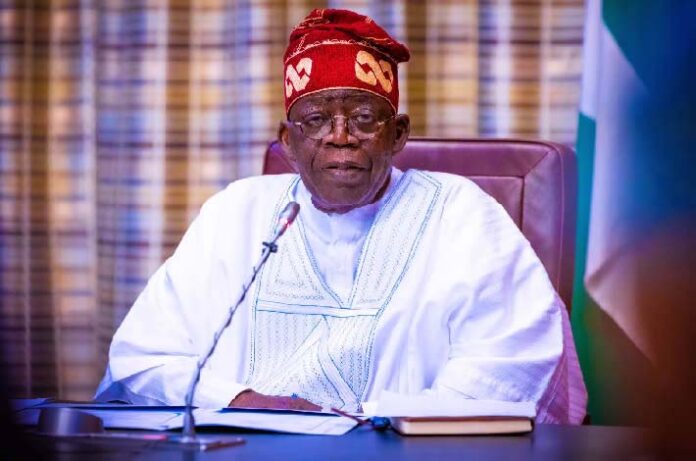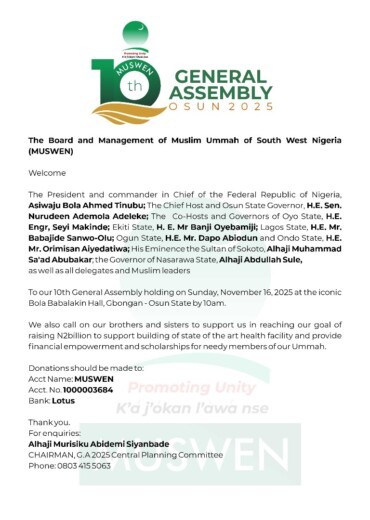TheFederal government has approved a comprehensive reform of admission entry requirements for all tertiary institutions in Nigeria.
The development followed approval of the National Guidelines for Entry Requirements into Tertiary Institutions in Nigeria.
The government explained in a statement by the Director, Press and Public Relations of the Federal Ministry of Education, Boriowo Folasade, that the action was aimed at democratizing access to higher education and empowering the nation’s youth.
“The policy, championed by the Minister of Education, Dr. Maruf Tunji Alausa, represents a major stride in advancing the Renewed Hope Agenda, promoting inclusivity, and driving national development through equitable education opportunities, “the statement said.
According to Dr. Alausa, the reform became necessary following years of restricted access that left many qualified candidates without admission despite meeting academic expectations.
He noted that while over two million candidates sit for the Unified Tertiary Matriculation Examination ,UTME,annually, only about 700,000 secure admission , a gap he attributed not to lack of ability but to outdated and unnecessarily rigid entry requirements.
“This imbalance must give way to fairness and opportunity. Our goal is to ensure that capable and deserving candidates are not denied education because of obsolete policies,” Dr. Alausa stated.
The National Guidelines for Entry Requirements into Nigerian Tertiary Institutions have been updated to remove systemic barriers while maintaining academic integrity and standards.
“The new framework applies across universities, polytechnics, colleges of education, and Innovation Enterprise Academies,IEAs, as follows:”Universities: Minimum of five (5) credit passes in relevant subjects, including English Language, obtained in not more than two sittings. Mathematics remains compulsory for Science, Technology, and Social Science courses.
“Polytechnics (ND Level): Minimum of four (4) credit passes in relevant subjects, including English Language for non-science courses and Mathematics for science-related programmes.
“Polytechnics (HND Level): Minimum of five (5) credit passes in relevant subjects, including English Language and Mathematics.
“Colleges of Education (NCE Level): Minimum of four (4) credit passes in relevant subjects, with English Language mandatory for Arts and Social Science courses, and Mathematics required for Science, Vocational, and Technical programmes.
“Colleges of Education (B.Ed Level): Minimum of five (5) credit passes, including English Language and Mathematics, as applicable to the course of study.
“Innovation Enterprise Academies (IEAs): To adopt the same minimum requirements as Polytechnics for National Diploma (ND) programmes.”
The National Innovation Diploma,NID, previously awarded by IEAs has been abolished to promote uniformity and credibility. It will be replaced with the National Diploma (ND) to ensure that graduates from IEAs have comparable recognition and progression opportunities as those from polytechnics.
To facilitate this transition, the National Board for Technical Education (NBTE) is re-accrediting all IEAs nationwide to align with the new ND standards. Institutions that fail to meet full accreditation requirements will face de-accreditation.
Dr. Alausa emphasized that the reform is a deliberate effort to expand access to tertiary education, potentially creating room for an additional 250,000 to 300,000 students to gain admission each year.
He added that the harmonized guidelines will not only reduce the number of out-of-school youths but also strengthen vocational and technical education while aligning Nigeria’s tertiary education framework with global and industry standards.
“Our young people are the heartbeat of this nation. This reform ensures that every Nigerian youth has a fair chance to learn, grow, and succeed. We are equipping them with the education and skills they need to reach their full potential and contribute meaningfully to national development,” the Minister said.
The government reaffirmed its unwavering commitment to inclusive education, human capital development, and youth empowerment in line with President Tinubu’s Renewed Hope Agenda.



